Let's say I have the following string:
https://87230a61de33450b964afbc0814884ec@p2238591.ingest.sentry.io/1504772008177343
*this is a dummy string, but chosen to replicate as accurately as possible the problem.
I have constructed the following RegEx:
/[^(\bhttps:\/\/\b)]|[^(\b\.ingest.sentry.io\/\b)]/g
With the idea that anything that is not the specific word https:// or .ingest.sentry.io/ is matched and removed.
However, my negation doesn't seem to be working:
What have I done wrong here?
I have also tried these variations:
[^(\bhttps:\/\/\b)|(\b\.ingest.sentry.io\/\b)]
[^(https:\/\/)]|[^(\.ingest.sentry.io\/)]
But to no luck ... just what am I doing wrong here?
